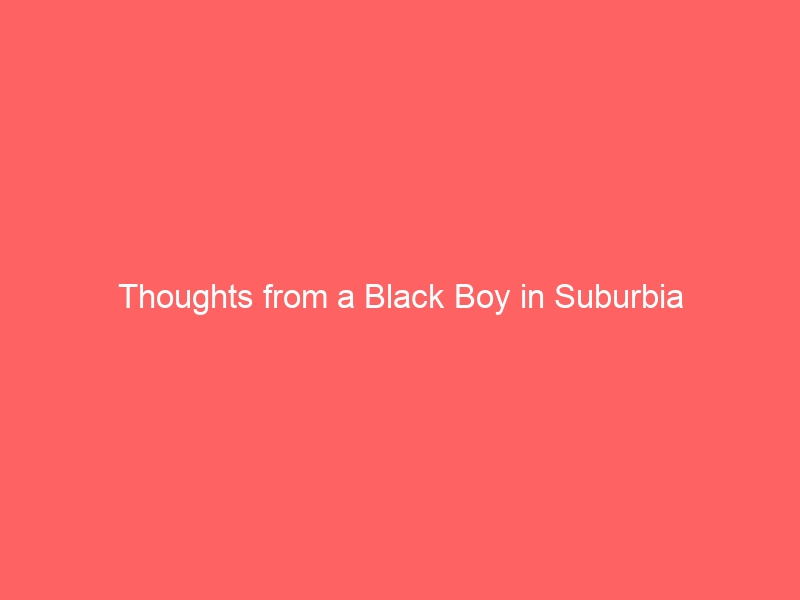Kamau Louis, International Affairs Major
“It’s just a joke.”
This is the phrase I always heard after a racist joke, a band-aid hastily put on the wound. But it was not just a joke; it was a way for the racist kids to say how white people were superior to black people, smothered in subtleties. Another popular phrase was “we make offensive jokes about everyone” — which meant everyone but about white, straight, or Christian people. As a black boy growing up in suburbia, I was the butt of many of these racist jokes or overheard them. The stress and anxiety of this were overwhelming at times. Still, I always knew the people who made those racist jokes were insecure and desperately wanting to feel superior over someone.
In the midst of quarantine, I have been thinking about my upbringing in a predominantly white middle class suburb. My early teenage years were one of the most challenging times in my life. As a male teenager, one has to deal with puberty, girls, and maturing — but as a black male teenager, I had to deal with the added stress of racism and navigating white spaces. These experiences, of course, affected, but they never defined me as a person.
I sought refuge from the racism I experienced by joining many different clubs during my time in high school. One of the first clubs I joined was my high school’s debate team. I was on the debate team for all four years and was the second person to accomplish that feat.
Nonetheless, even among spaces filled with socially conscious individuals’ — ignorance persists. Every year that I ran for a leadership position on my debate team, I was always passed over in favor of usually white and less experienced teammates. Year after year of hard work, I faced the same discrimination many people of color face in corporate America. It was always frustrating to hear my teammates months after elections — complaining about how X person was not doing their job, stopped competing entirely, and was not showing up to practice.
It is ironic to see many of those same teammates on social media decry issues like mass incarceration, police brutality, and systematic racism during the height of the George Floyd protests. I realize people are capable of changing over time, and that is perfectly fine. I also understand many people feel powerless when it comes to ending issues like systemic racism and police brutality. But everyone can create change on a personal level when it comes to ending racism.
Here’s how
By treating people of color with respect and not discounting their experiences when it comes to race.
By sticking up for your POC friends when someone makes a racist joke.
And rewarding their hard work and commitment.
When I was going through my struggles on the debate team, a good friend and teammate comforted me. When I told my friend about how I felt wronged by the whole team and felt inferior to my peers since I was not in leadership. My friend listened and said to me that none of it matters because my hard work will be appreciated and awarded in the real world. He was entirely right. In the two years since I graduated, I have been selected for a federal government internship, accepted to a Harvard feeder program, and won an award for academic excellence from a presidential foundation.
To every black boy in suburbia — the sky’s the limit. None of the trivial nonsense of high school matters. It is quite literally just a joke.
